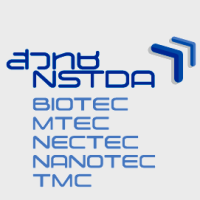About NSTDA
NSTDA: Driving Thailand's Scientific and Technological Development
The National Science and Technology Development Agency (NSTDA) is a government agency under the Ministry of Higher Education, Science, Research and Innovation. Established in 1991, NSTDA aims to drive Thailand's scientific and technological development by promoting research, innovation, and technology transfer.
With a mission to enhance the country's competitiveness through science and technology, NSTDA has been instrumental in developing cutting-edge technologies that have contributed significantly to various sectors of the economy. The agency has also played a crucial role in building research capabilities across the country by providing funding support for research projects.
Research Institutes
NSTDA operates several research institutes that focus on different areas of science and technology. These institutes are:
1. National Electronics and Computer Technology Center (NECTEC)
2. National Metal And Materials Technology Center (MTEC)
3. National Nanotechnology Center (NANOTEC)
4. Biotechnology Research Institute (BRI)
Each institute has its own set of objectives but works towards achieving NSTDA's overall goal of driving scientific advancement in Thailand.
National Electronics And Computer Technology Center (NECTEC)
NECTEC is one of Asia's leading centers for electronics and computer technology research. The center focuses on developing innovative technologies that can be used to improve people's lives while also contributing to economic growth.
Some notable achievements by NECTEC include developing an electronic voting system that was used during Thailand's general elections in 2019 as well as creating an AI-powered chatbot called "Dr.Ai" which provides medical advice to patients.
National Metal And Materials Technology Center (MTEC)
MTEC is responsible for conducting research on metals, materials engineering, nanomaterials, ceramics, polymers among others with the aim of improving industrial processes while reducing environmental impact.
The center has developed several innovative products such as biodegradable plastic bags made from cassava starch which are eco-friendly alternatives to traditional plastic bags made from petroleum-based materials.
National Nanotechnology Center (NANOTEC)
NANOTEC focuses on nanoscience with an emphasis on developing new materials with unique properties at the nanoscale level which can be used for various applications such as drug delivery systems or energy storage devices.
One notable achievement by NANOTEC includes creating a new type of solar cell called "Dye-sensitized solar cells" which are cheaper than traditional silicon-based solar cells while still being highly efficient at converting sunlight into electricity.
Biotechnology Research Institute(BRI)
BRI conducts cutting-edge biotech R&D activities aimed at improving human health through disease diagnosis & treatment development using advanced molecular biology techniques like genomics & proteomics.
In addition to these four institutes mentioned above,NSTDA also operates two other centers: The Joint Graduate School Of Energy And Environment( JGSEE)and Eastern Economic Corridor Of Innovation(EINSTEIN).
Joint Graduate School Of Energy And Environment(JGSEE)
JGSEE is focused on energy-related issues such as renewable energy sources like wind power,solar power etc.,energy conservation,and environmental sustainability.The school offers graduate programs related to these fields including Master’s degree programs in Energy Management & Environmental Management,Energy Engineering & Management etc.,and PhD programs related to sustainable energy systems design optimization,renewable energy integration into power grids etc..
Eastern Economic Corridor Of Innovation(EINSTEIN)
Einstein aims at promoting innovation-driven economic growth within Eastern Economic Corridor(EEC),which covers three provinces namely Chonburi,Rayong,and Chachoengsao.The center provides support services including incubation facilities,business consulting services,funding opportunities etc.to startups operating within EEC region.
Technology Transfer
Apart from conducting R&D activities,NSTDA also plays a crucial role in transferring technology developed within its institutes into commercial products or services.This helps create new businesses,jobs,and contributes towards economic growth.NSTDA supports tech transfer through licensing agreements,joint ventures,startup incubation programs,funding opportunities etc..
Conclusion
In conclusion,the National Science And Technology Development Agency(NSTDA) plays a vital role in driving scientific advancement within Thailand.The agency operates several world-class R&D centers focused on different areas such as electronics,nanoscience,bio-technology among others.NSTDA’s efforts have led not only led towards technological advancements but have also contributed significantly towards socio-economic development within Thailand.With continued support from government agencies,private sector partners,and international collaborations,NSTAD will continue playing an important role towards making Thailand more competitive globally through science&technology-driven innovations..

